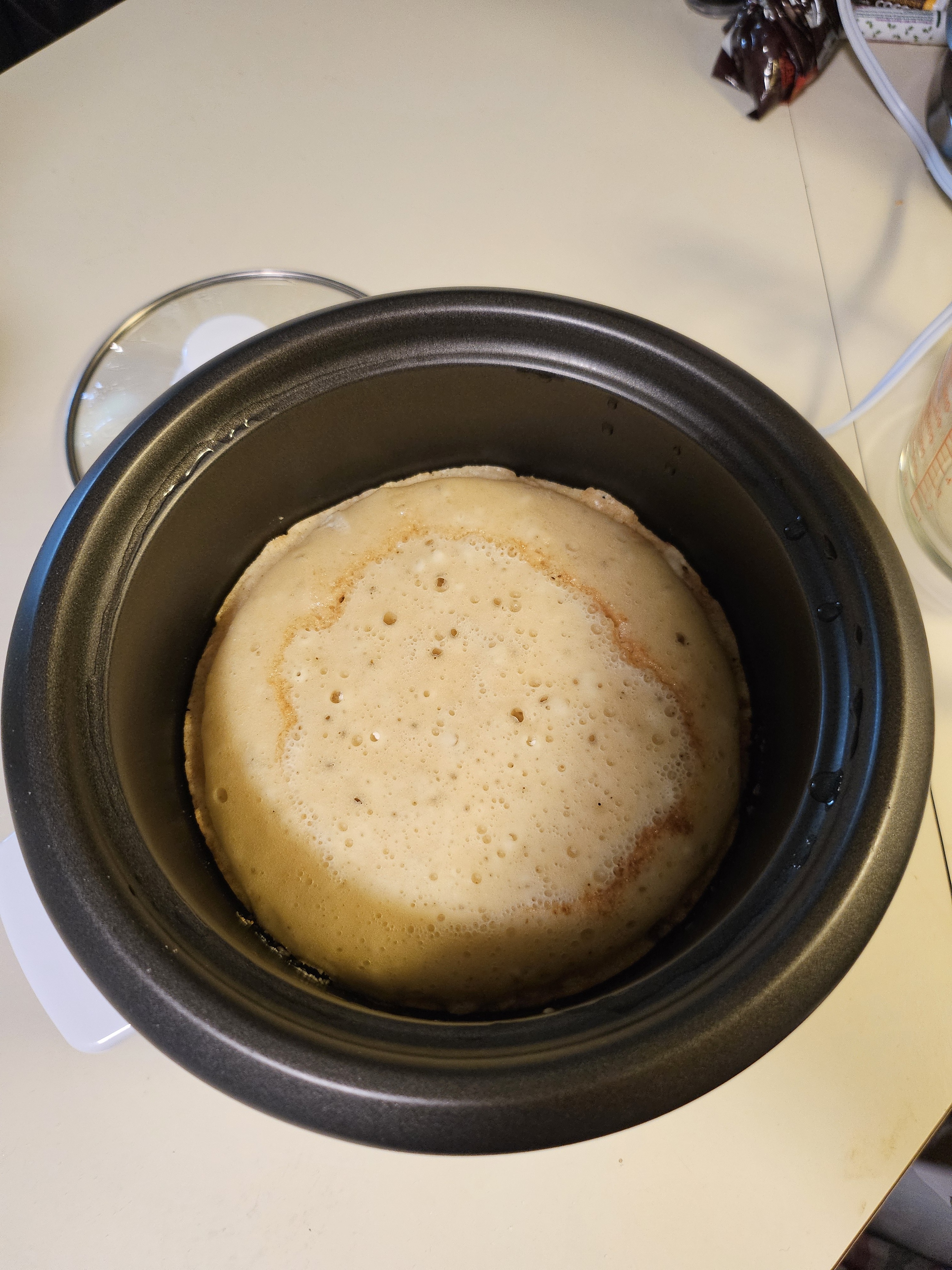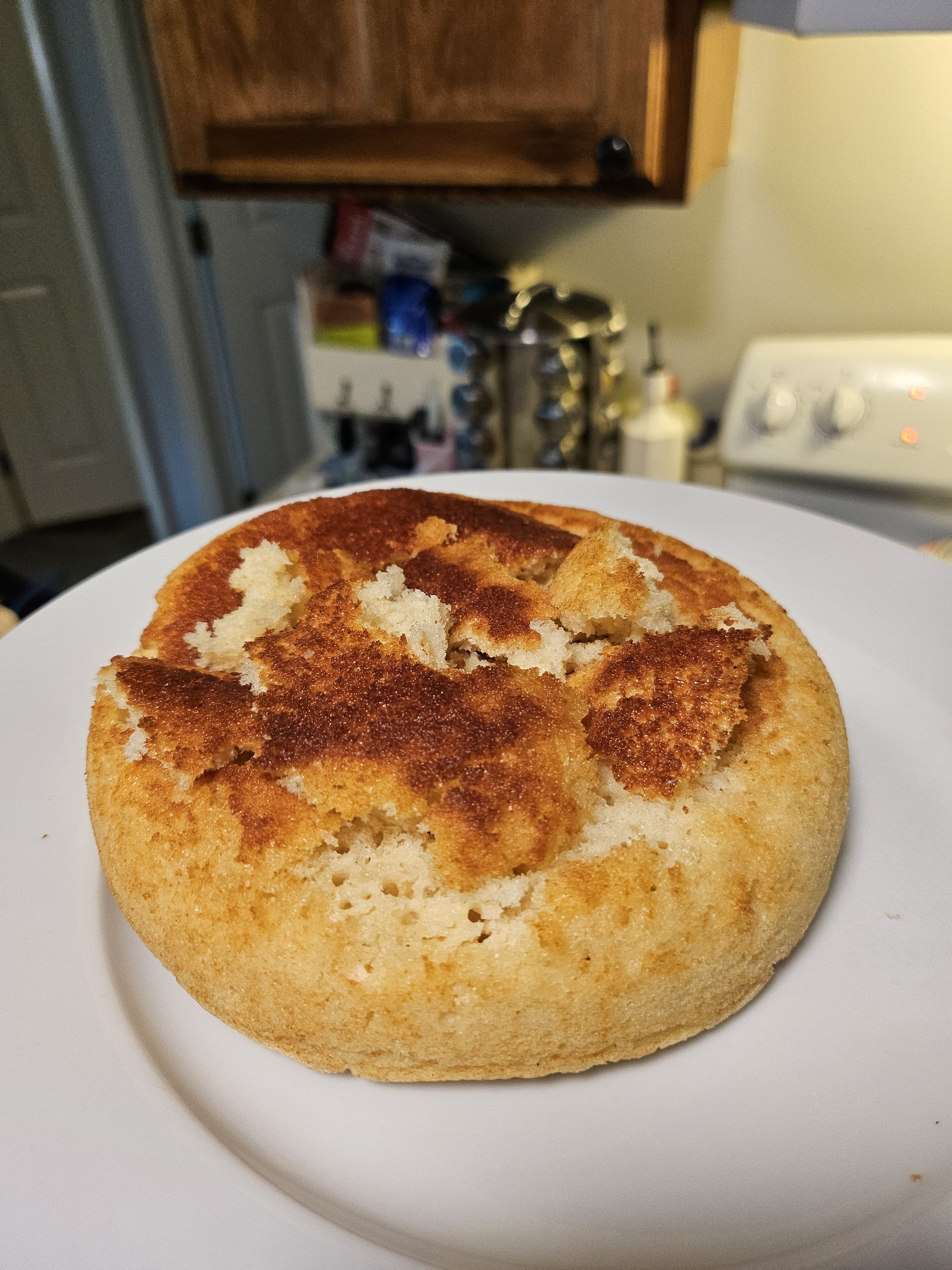- 0 Posts
- 12 Comments

 1·5 months ago
1·5 months agoI did it! See above. Thanks for the idea!

 2·5 months ago
2·5 months agoIt works!


Not bad! Though I used Bisquick, for better flavor, and for the work involved dirtying bowls and measuring cups I’d rather just use a pan.
In fact I made extra and made three pan sized pancakes in the time it took to make one big fluffy potcake.
Don’t get me wrong, it’s a great Idea and it totally works. If I were gonna do it again seriously, I’d get a dedicated pancake mix that uses just water, to maximize the simplicity, which is the goal I think.
It was fluffy and delicious, though I will say a lot of pancake flavor comes from the crispy edges and the thinness of the cake and you lose some of that with the thick potcake.
Glad I tried it, thanks to op for the idea!

 4·5 months ago
4·5 months agoThat looks amazing

 7·5 months ago
7·5 months agoI… how… huh? I must try this. I use my rice cooker all the time, but for rice
I used to like the a400, had a few of them in service, but a few years ago I tried another one and it was terrible. Just… Slow… like an HDD. I did some research and apparently they changed something with the nand somewhere along the line. Did a bait and switch. I don’t remember the details but it annoyed me.
I actually needed to buy a budget SSD just today, and I got a BX500. We’ll see how it goes. I know not to expect much from a drive without DRAM, but at least I know that going in.

 2·6 months ago
2·6 months agoThanks, I thought of something even better. Slap Linux on that thing! Wipe the whole drive on “accident”. Linux is way more innocuous than pirate Windows 🤷♂️

 2·6 months ago
2·6 months agoGo with humility first, you screwed up. Follow it up with a joke about how you discovered a flaw in the configuration of work laptops, and now they can fix it to prevent someone else from being able to do that 🤷♂️ I think you’ll be ok
Thanks, I guess I still don’t understand though.
I see now that watts and therefore kW are rates. So it’s silly to add another rate to the end by appending “per hour”. But what is the time component of the watt calculation? To me it’s essentially instantaneous, even if that’s wrong. Even if that breaks the math, it’s still essentially true on a macro scale. And if it’s instantaneous, or even just close like microseconds, then it doesn’t hurt to apend another rate to the end, does it?
So why not use it? Batteries come with capacities rated in Wh and kWh, and it weirdly still makes sense to me because of my usage rate per hour example in my last comment.
And if we shouldn’t use it, then what should we use?
Is this problem we’re discussing, one that only occurs if you try to get really accurate with the numbers and times? Because for my uses it’s always seemed to work well enough.
Not being argumentative, just trying to learn, thanks
Wait wait Wait, can you give me more on this kWh thing? I thought I understood this already.
A single kW is a unit of power, literally 1000 watts.
A kWh is a unit of energy, as in stored or delivered. Draw 500 watts for 2 hours? That’s a kWh. Or have a battery that can hold 1 kWh, then assuming 100% efficiency you could draw 1000 watts from it for an hour before it was empty.
All of this is kW times hour, I would say? But in my mind I would interchangeably say per hour as well, they feel the same.
Obviously I’m wrong, but I’d like to know why lol
It should be default on, with a setting to turn it off for power users


Bidet master race.
Got myself one with heated seat, heated water (tankless water heater, not a connection to a hot water tap that takes ages to warm up), and even a hot air dryer thing that I only really use in the winter.
Cost a hundred bucks, best hundred bucks I’ve ever spent, I’ll never go back.
Cold water ones are good too, more practical even, but the water gets cold here in the winter, make your brown eye blue lol